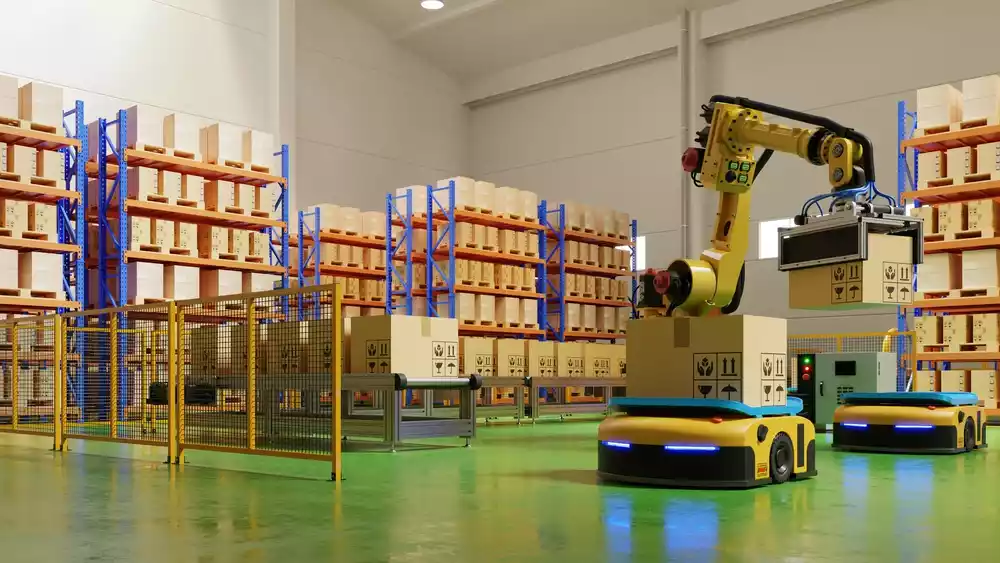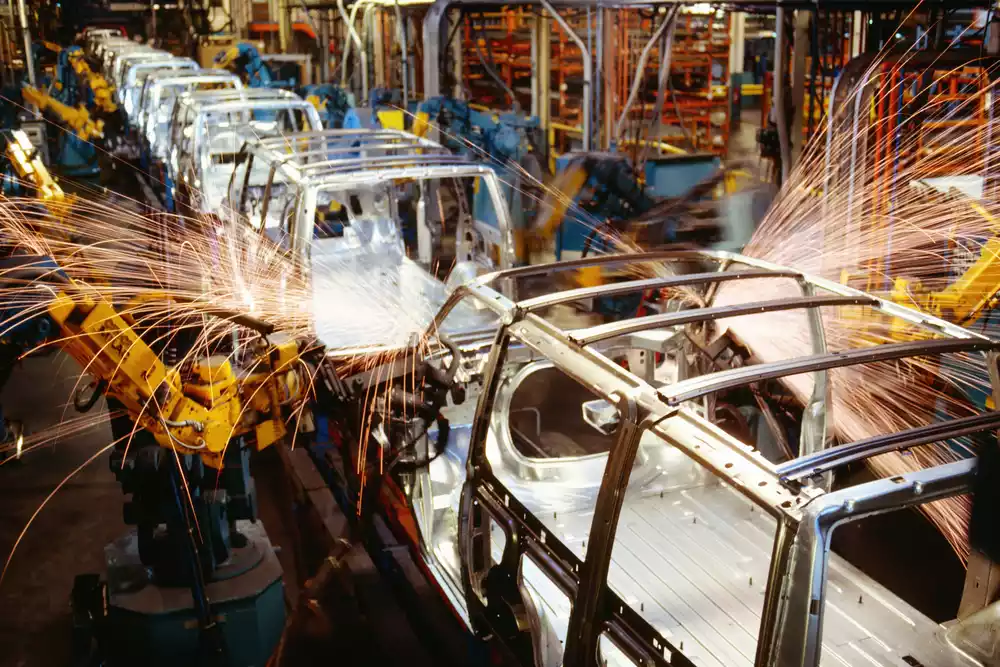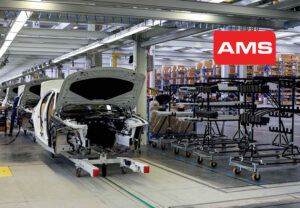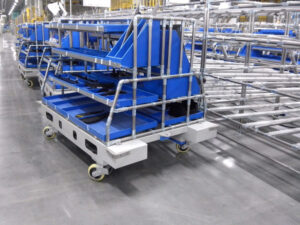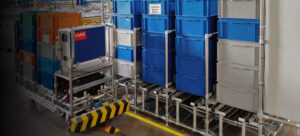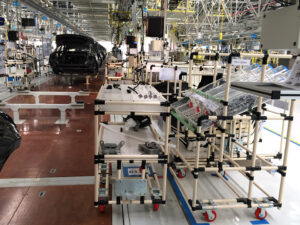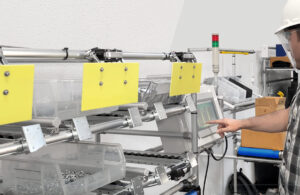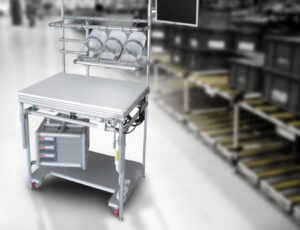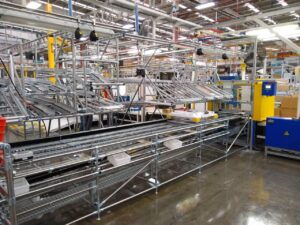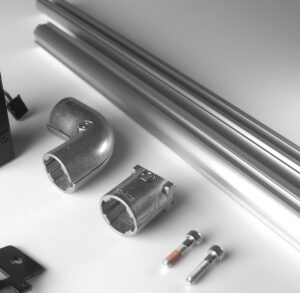Blog
- Home
- Technology
- Smarter Manufacturing: Harnessing the Power of Automated Industrial Solutions
Smarter Manufacturing: Harnessing the Power of Automated Industrial Solutions
Table of contents
Smarter Manufacturing: Harnessing the Power of Automated Industrial Solutions
Automation has revolutionized the manufacturing industry, enabling faster production, improved quality, and reduced costs.
With the advent of smart technologies, manufacturers are now able to harness the power of automated industrial solutions to further streamline their operations and achieve higher levels of efficiency and productivity.
By integrating advanced robotics, artificial intelligence, and data analytics, smarter manufacturing opens up a world of possibilities for optimizing processes, enhancing product customization, and responding rapidly to changing market demands. These technologies enable manufacturers to automate repetitive tasks, monitor and analyze production data in real-time, and make data-driven decisions that drive performance and profitability. With smarter manufacturing solutions, companies can stay ahead of the competition and meet the evolving needs of customers in today’s fast-paced business environment.
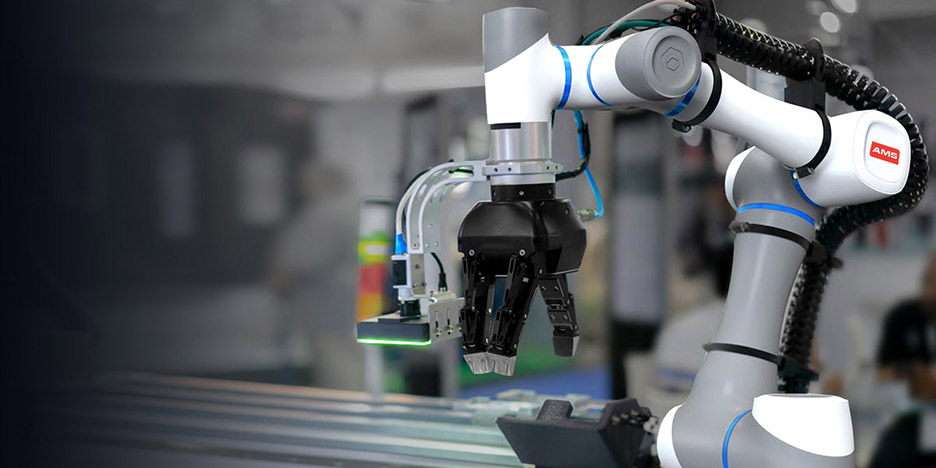
Streamlining Operations: The Benefits of Automation
When it comes to smarter manufacturing, efficiency is key. Every minute wasted and every error made can have a significant impact on productivity. That’s where automated industrial solutions come in. By harnessing the power of automation, manufacturers can streamline their operations and enjoy a myriad of benefits.
Increased Efficiency
One of the main advantages of automated and smarter manufacturing processes is the ability to greatly increase efficiency. Automated systems can perform tasks with unparalleled speed and precision, far surpassing what a human operator could achieve. This not only reduces the time it takes to complete a task but also minimizes the risk of errors or defects.
Reduced Costs
Automated industrial solutions can also have a significant impact on the company’s bottom line. By eliminating or minimizing manual labor, manufacturers can reduce labor costs. Furthermore, automation can optimize processes, reduce energy consumption, and minimize material waste, resulting in overall cost savings.
Automation: Beyond Assembly Lines
When we think of automation in smarter manufacturing, assembly lines often come to mind. However, automation has transcended these traditional boundaries and is transforming various aspects of the manufacturing industry.
Inventory Management
Effective inventory management is crucial for smooth operations. Automation can revolutionize this aspect of smarter manufacturing by utilizing sensors and real-time data to monitor stock levels, track inventory movements, and automatically reorder supplies when needed. This not only ensures that materials are always available but also minimizes the risk of costly stockouts or overstocking.
Quality Control
Ensuring consistent product quality is a top priority for manufacturers. With automation, quality control processes can be taken to new heights. Automated systems can consistently and meticulously inspect products, identifying any defects or inconsistencies. This not only saves time compared to manual inspections but also improves accuracy and reduces the likelihood of human error.
Furthermore, automated quality control systems can be seamlessly integrated into the production process, performing continuous monitoring and providing real-time feedback. This allows manufacturers to identify and rectify issues promptly, reducing scrap and rework costs.
Automation has undoubtedly revolutionized the smarter manufacturing industry, bringing immense benefits to companies of all sizes. From increased efficiency and reduced costs to improved inventory management and quality control, the power of automated industrial solutions is undeniable. As technology continues to advance, manufacturers must harness these opportunities to stay competitive in an ever-evolving global market.
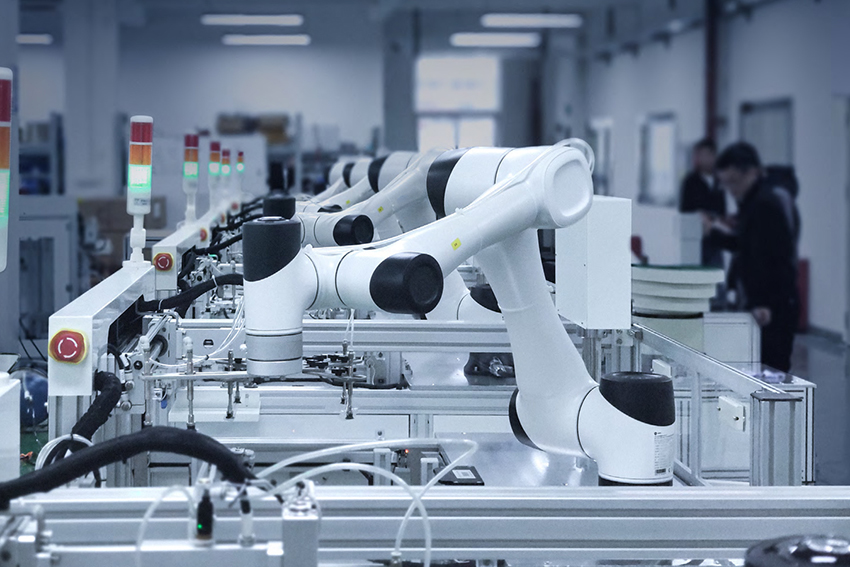
Intelligent Robotics: The Future of Smarter Manufacturing
When we think of robotics, we often picture futuristic machines with human-like features. However, the reality is that intelligent robotics in smarter manufacturing goes beyond humanoid designs. Today, collaborative robots, also known as cobots, are changing the dynamics of factory floors. These robots work alongside humans, enhancing productivity and safety. With built-in sensors, they can detect human presence and adjust their movements accordingly.
Collaborative robots are designed to handle repetitive or physically demanding tasks, freeing up human workers to focus on more complex and creative endeavors. They can be programmed to perform precise assembly, pick-and-place, and packaging operations, bringing speed and efficiency to the production line.
Autonomous vehicles are another exciting development in intelligent robotics. These self-driving machines navigate factory floors, transporting materials and components from one area to another. They can follow pre-defined routes, avoid obstacles, and interact with other robots and humans. By reducing the need for manual transportation, autonomous vehicles help streamline the smarter manufacturing process and increase overall productivity.
Improving Efficiency and Quality
The integration of intelligent robotics in smarter manufacturing has quickly become a game-changer, bringing numerous benefits. One major advantage is the ability to improve efficiency and productivity. Robots can work around the clock, with minimal downtime, reducing the time required to complete tasks and increasing overall output.
Moreover, these robots are incredibly precise and accurate, minimizing errors on the assembly line. By eliminating human errors, manufacturers can produce higher-quality products consistently, meeting customer expectations and reducing costly rework or recalls.
Enhancing Workplace Safety
Another critical aspect of intelligent robotics in smarter manufacturing is enhanced workplace safety. Collaborative robots are equipped with sensors and algorithms that enable them to detect human presence and react accordingly. This means that when a human worker gets too close, the robot will slow down or stop, preventing potential accidents and injuries.
Autonomous vehicles also contribute to safer working environments. By handling material transportation, they reduce the need for manual lifting and carrying, which can lead to strain or injuries. Additionally, these vehicles are designed to navigate around obstacles, ensuring collision-free operations and minimizing the risk of accidents.
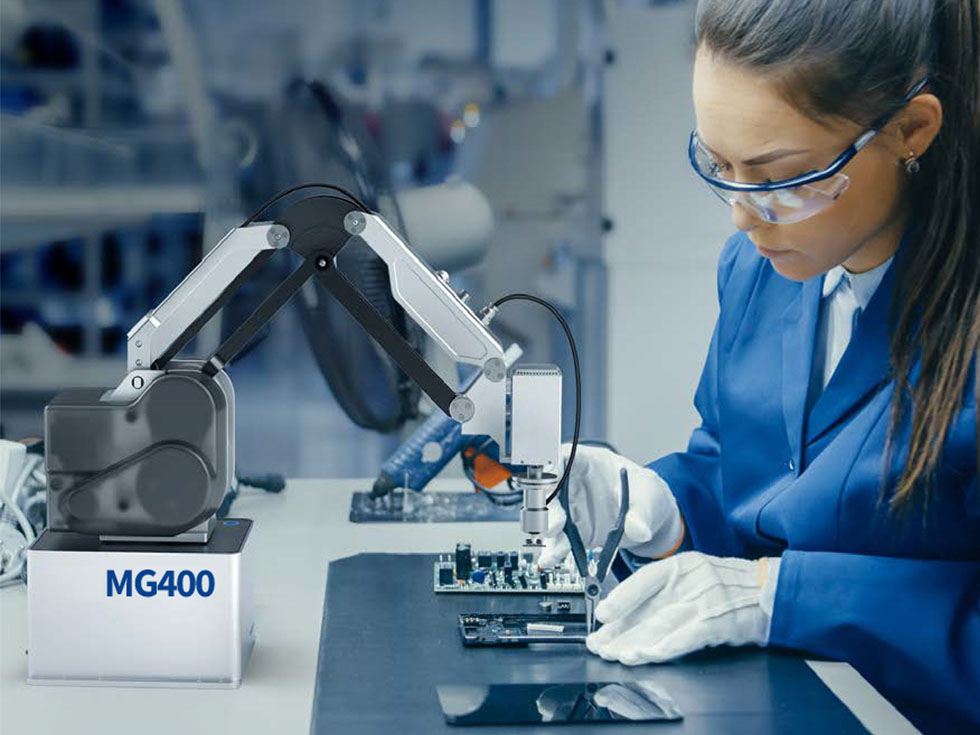
Upskilling the Workforce for Automation
The advent of automated industrial solutions is revolutionizing the manufacturing sector, but it’s important to recognize that these technologies are not intended to replace humans entirely. On the contrary, automation is meant to enhance human capabilities and make smarter manufacturing processes more efficient. To fully harness the power of automated systems, it is crucial to upskill the existing workforce and prepare them for the new challenges and opportunities that arise.
The Role of Training in Automation
Training plays a pivotal role in equipping employees with the necessary skills to work alongside automated systems. It provides them with the tools and knowledge to operate, monitor, and maintain these complex machines effectively. Introducing comprehensive training programs that address both technical and interpersonal skills not only empowers employees but also improves their job satisfaction and overall productivity.
Benefits of Upskilling Employees
When employees are upskilled, they become valuable assets to the organization. They gain the expertise to troubleshoot issues, identify inefficiencies, and optimize processes, thus enhancing operational efficiency. Additionally, upskilling nurtures a culture of innovation and continuous improvement, fostering an environment where employees actively contribute ideas and collaborate with automated systems to drive business growth.
Automation in Supply Chains and Logistics
When it comes to the world of manufacturing, automation isn’t limited to the production floor alone. Automated industrial solutions have also revolutionized supply chains and logistics, paving the way for greater efficiency and streamlined operations. From inventory management to order fulfillment, automation is transforming every aspect of the supply chain.
Efficient Inventory Management
One of the key areas where automation has had a significant impact is inventory management. With the help of advanced sensors and intelligent software, companies can now track and monitor their inventory in real-time. This not only eliminates the need for manual counting and reconciling, but it also enables companies to make more accurate demand forecasts and optimize their inventory levels.
Streamlined Order Fulfillment
Automation has also greatly improved the process of order fulfillment. Through the use of robotic systems and automated guided vehicles (AGVs), warehouses and distribution centers can now pick, pack, and ship orders at a much faster pace. This not only reduces human error but also cuts down on lead times, allowing companies to meet customer demands more effectively.
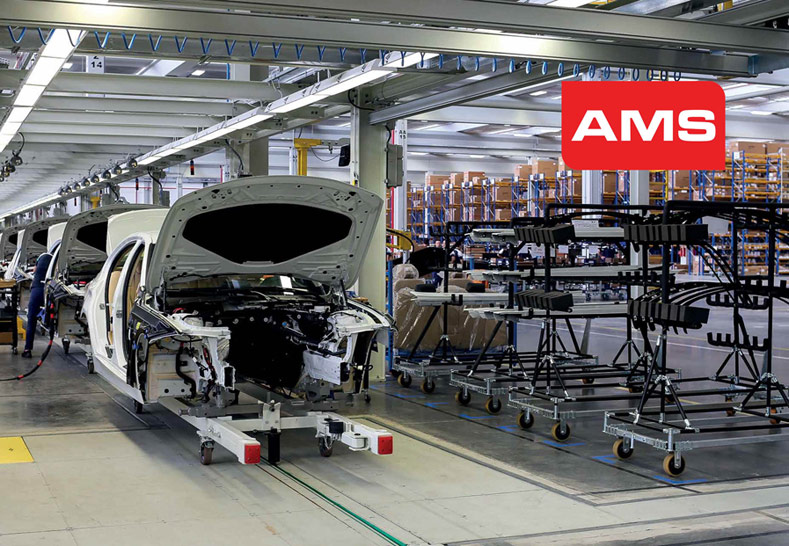
Unlock the Future with AMS: Your Partner in Smarter Manufacturing
The world of manufacturing is undergoing a profound transformation, driven by the incredible potential of automated industrial solutions like cobots (collaborative robots) and AGVs (Automated Guided Vehicles). These technologies are not just tools for improving efficiency; they are the cornerstones of smarter manufacturing. By embracing these innovations, companies can optimize their production processes, reduce costs, enhance safety, and boost overall productivity.
To embark on this journey toward smarter manufacturing, take action today by reaching out to us at AMS. Begin by assessing your specific manufacturing needs and discussing potential solutions with our expert team. AMS can provide you with tailored cobots, AGVs, esd protection, and all you need. Don’t miss out on the opportunity to revolutionize your manufacturing processes and position your company for a brighter, more prosperous future. Invest in automated industrial solutions from AMS and lead the way toward a smarter and more efficient manufacturing industry.
We look beyond the scope to surpass your expectations
We understand the importance of retaining a strong working relationship with our customers. AMS provides a niche for everyone through excellent customer care and top-rank products.

